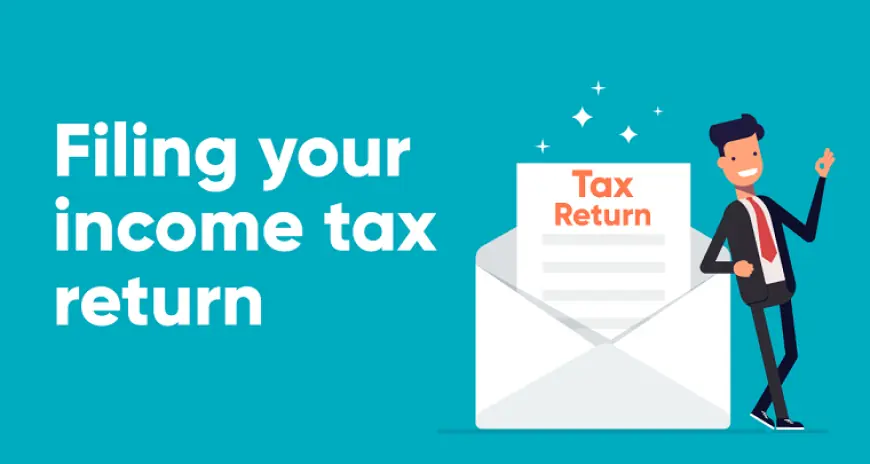Unlock Tax Benefits! Learn How to File Your Return in Pakistan the Smart Way

Introduction
Tax season can be intimidating, especially if you’re unaware of how to maximize your benefits. But what if filing your tax return in Pakistan could become a strategic move to unlock significant financial advantages? Whether you’re a salaried individual, business owner, or freelancer, mastering the art of tax filing is essential for keeping more of your hard-earned money. This comprehensive guide reveals How to File an Income Tax Return in Pakistan? the smart way, unlocking exclusive tax benefits and optimizing your financial health.
By the end of this article, you’ll understand the smartest approaches, common pitfalls to avoid, and key tips that help you save money — legally and efficiently. Let’s dive into how you can transform your tax filing from a daunting chore into a rewarding experience!
Why Filing Your Tax Return in Pakistan Matters More Than Ever
Did you know only about 1.5 million taxpayers are registered in Pakistan out of a population exceeding 220 million? That means millions are missing out on the numerous tax benefits and savings they deserve. Filing your tax return isn’t just a legal obligation; it’s a powerful financial tool that can unlock:
-
Tax refunds
-
Exemptions on investments
-
Reduction in taxable income
-
Eligibility for government incentives
By filing your taxes correctly and timely, you gain access to these benefits, helping you build wealth rather than losing it to penalties or missed opportunities.
Frequently Asked Questions About Filing Tax Returns in Pakistan
1. Who must file a tax return in Pakistan?
If you earn an income above the minimum taxable threshold (currently Rs. 600,000 annually for salaried individuals), you are legally required to file your tax return. This includes salaried employees, business owners, and freelancers. Even if your income falls below this, filing can help claim refunds or prove financial credibility.
2. What are the deadlines for filing tax returns?
The Federal Board of Revenue (FBR) typically sets the deadline for salaried individuals as September 30 each year. For businesses, the deadline is usually September 30 as well, but extensions may be granted under specific conditions. Filing late can result in fines and interest penalties, so early filing is wise.
3. What documents do I need to file my tax return?
Essential documents include:
-
CNIC (Computerized National Identity Card)
-
Salary slips or income proof
-
Bank statements
-
Investment certificates or receipts (for tax credits)
-
Details of any other income sources
-
Previous year’s tax return (if applicable)
Having these prepared ahead of time ensures a smooth filing process.
4. How can I maximize tax benefits legally?
Pakistan’s tax system offers many deductions and credits, such as:
-
Investment in approved savings schemes (e.g., National Savings Certificates, pension funds)
-
House rent allowance claims
-
Medical expenses and charitable donations
-
Education expenses
Utilizing these smartly reduces your taxable income and boosts your refund potential.
Proven Strategies to File Your Tax Return the Smart Way
1. Register on the FBR portal early:
Create your e-filing account on the official FBR website as early as possible. This gives you ample time to familiarize yourself with the system and gather required documents.
2. Leverage tax credits and exemptions:
Pakistan offers multiple tax credits, such as for investments in stock markets or retirement savings. Research and apply for all relevant credits to reduce your tax liability.
3. Maintain meticulous records:
Well-organized documentation not only speeds up filing but protects you during audits. Keep digital and physical copies of all financial records.
4. Consult a tax professional if unsure:
Tax laws frequently change in Pakistan. Getting expert advice ensures compliance and maximizes benefits without risking penalties.
5. File before the deadline to avoid penalties:
Late filing attracts fines starting from Rs. 2,000 and can escalate quickly. Early submission also allows quicker refund processing.
Key Tax Benefits to Unlock When Filing Correctly in Pakistan
-
Tax Rebates on Investment: The government offers up to 20% rebate on investments in mutual funds and stock exchanges, significantly lowering your tax bill.
-
No Tax on Dividend Income up to Rs. 500,000: This exemption encourages stock market participation.
-
Exemption on Zakat and Donations: Donations to approved charitable organizations reduce taxable income.
-
Reduced Tax Rates on Salaried Individuals: The progressive tax slabs ensure lower earners pay less, but filing is essential to benefit.
Real-Life Example: How Filing Smart Saved Rs. 50,000 in Taxes
Take Ahmed, a salaried employee in Karachi earning Rs. 1.2 million annually. By filing his return early and claiming deductions on house rent and investments in pension funds, Ahmed reduced his taxable income by Rs. 400,000. Consequently, he saved around Rs. 50,000 in taxes, which he reinvested in his retirement plan—multiplying his wealth potential.
Conclusion: Act Now — Your Smart Tax Return Starts Here!
Filing your tax return in Pakistan isn’t just about compliance; it’s a strategic opportunity to unlock powerful financial benefits. The smart way to file includes early registration, understanding deductions, maintaining precise records, and consulting professionals when needed.
Don’t let tax season intimidate you. Instead, embrace it as a chance to safeguard and grow your wealth legally. Remember, every year you delay filing smartly, you miss out on thousands of rupees in potential savings and refunds.
What's Your Reaction?
 Like
0
Like
0
 Dislike
0
Dislike
0
 Love
0
Love
0
 Funny
0
Funny
0
 Angry
0
Angry
0
 Sad
0
Sad
0
 Wow
0
Wow
0


















































